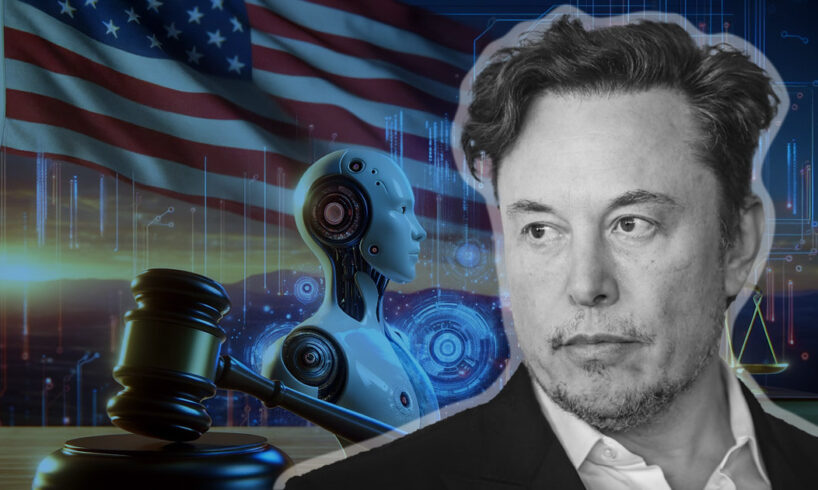
[ad_1]
Elon Musk revealed in recent court filings that he personally intervened to stop OpenAI from launching an initial coin offering (ICO) in 2018, a move he claimed would have severely damaged the organization’s reputation.
Musk’s legal team disclosed the details in an amended lawsuit filed on Nov. 14, adding to the growing tensions between the billionaire and the AI research group he co-founded.
The filing alleged that OpenAI co-founders Sam Altman and Greg Brockman proposed the ICO to address the nonprofit’s financial struggles.
However, Musk, who served as co-founder and was a significant donor rejected the plan outright, warning that issuing a token would undermine trust in OpenAI and compromise its mission to develop safe artificial general intelligence (AGI).
Musk stated in the filing:
“It would simply result in a massive loss of credibility for OpenAI and everyone associated with the ICO.”
The decision highlighted internal tensions over how the organization could balance its ambitious goals with financial sustainability.
Origins and funding challenges
OpenAI launched in 2015 with the lofty goal of ensuring AGI benefits all of humanity.
Musk joined as a co-founder and contributed $44 million in funding while serving as co-chair of its board. The organization also attracted significant support from Silicon Valley’s elite, including Altman, who provided critical leadership and additional funding.
Despite these contributions, OpenAI struggled to sustain its operations financially by 2018. The proposed ICO, a popular fundraising method during the crypto boom of the time, aimed to generate significant capital but faced pushback from Musk, who feared it would conflict with OpenAI’s nonprofit values.
Court filings revealed that Musk even suggested merging OpenAI with Tesla to create a sustainable funding model. The proposed merger would have allowed Tesla’s AI resources to bolster OpenAI’s efforts while providing the nonprofit with a steady financial base.
However, the board did not pursue Musk’s idea, further straining relationships within the organization.
OpenAi’s shift
Musk left OpenAI’s board in February 2018, citing potential conflicts with Tesla’s own AI development projects. His departure marked a pivotal moment for the organization.
In 2019, OpenAI subsequently transitioned to a “capped-profit” model designed to attract substantial investment while limiting returns to stakeholders.
The shift enabled OpenAI to secure significant backing, including a $1 billion partnership with Microsoft that year. However, Musk’s lawsuit argues that this transition represented a departure from OpenAI’s original nonprofit mission and accuses the leadership of fraud and federal racketeering.
The amended complaint, filed in August, also added Microsoft as a defendant in the case, accusing the company of distorting the AI organization’s purpose through its financial involvement.
Meanwhile, OpenAI has filed a motion to dismiss the case, arguing that Musk’s claims are legally unfounded and are part of a broader strategy to gain a competitive advantage in the AI industry.
Mentioned in this articlePosted In: US, AI, Featured, Legal
[ad_2]
Source






